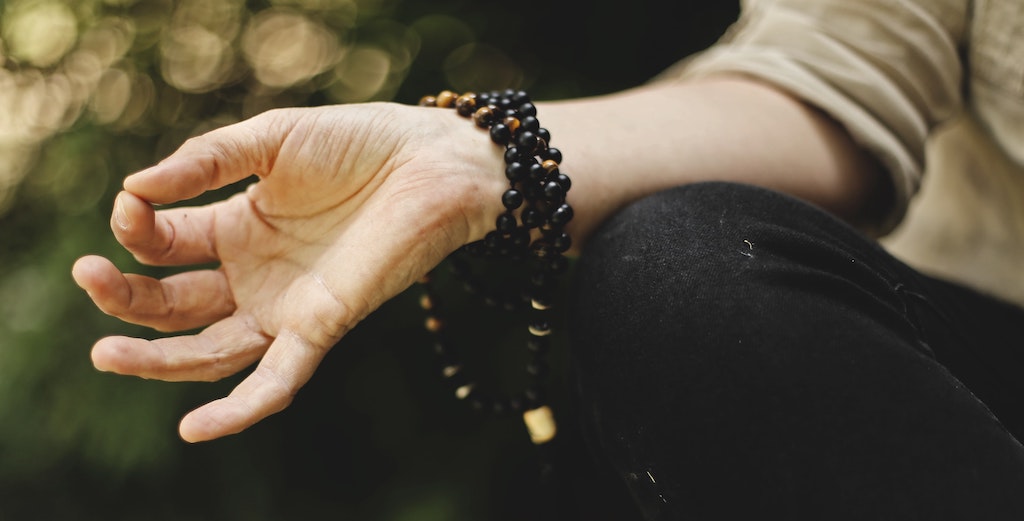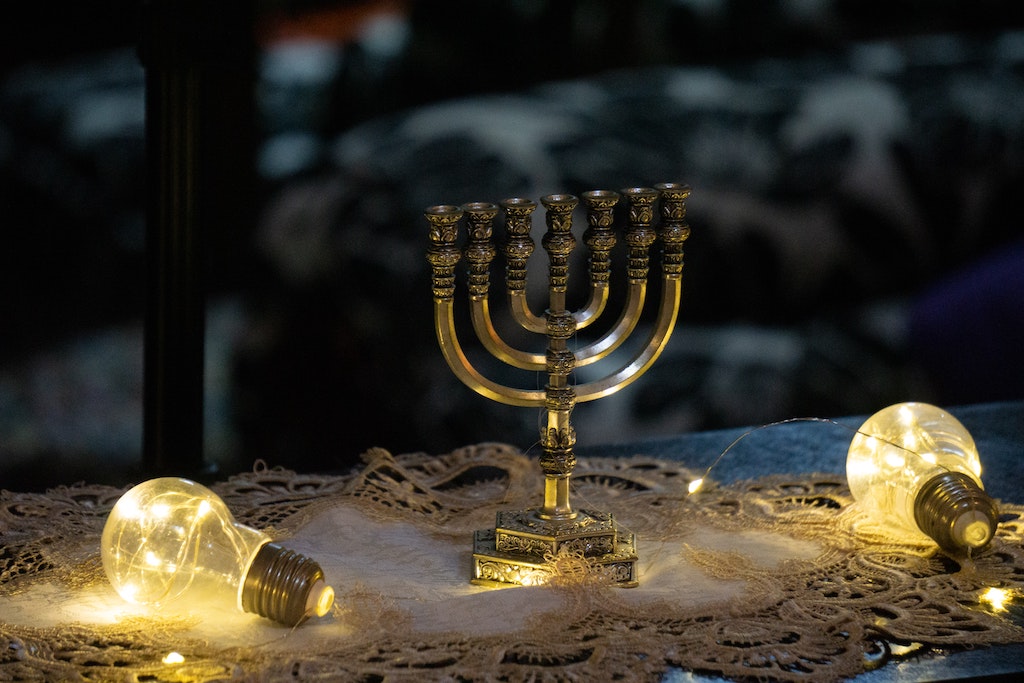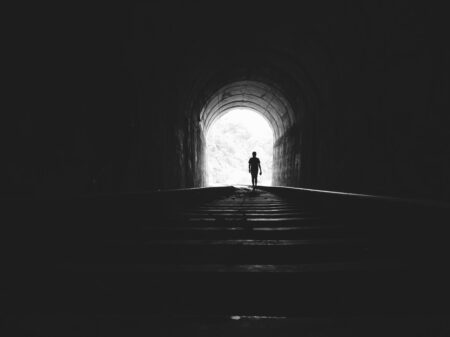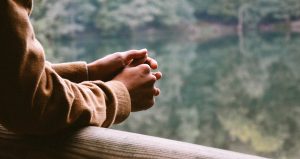I hear a strange sound coming from my phone. Different from what I’m used to. I grab my phone out of curiosity. “Your average screen time last week was 2 hours and 38 minutes a day.”
Wow. That much?!
I let the numbers sink in. Of the 16 hours that I am awake on an average day, I apparently spent 15% on my phone. That’s so much!
Though I get pretty overwhelmed sometimes by my to-do list, I apparently do have time to spend about 18 hours a week on my phone. I did not realize that at all!
It is time for some change. Time to be more aware of how I spend my time.
But where do I start?
Mindfulness
I grab my phone. I know, here I go again. But I am kinda curious how others handle this situation. I search #rest and #digitaldetox and on Instagram I read something about mindfulness. Could that be something for me?
On Wikipedia I read: “Mindfulness is the practice of purposely bringing one’s attention in the present moment without evaluation, a skill one develops through meditation or other training. Mindfulness practice has been employed to reduce depression, to reduce stress, anxiety, and in the treatment of drug addiction.”
What is mindfulness?
Mindfulness. Wikipedia calls it the practice of attention, others call it a lifestyle. A lifestyle in which you focus on the accepting of inevitable negative and positive experiences. In this you are, in a non-reactive way, aware of the physical and spiritual sensations and situations of the moment. For a lot of people mindfulness exists out of meditation and yoga.
“Non-reactive?” I think to myself. Oof, that’s where it goes wrong for me. Not reacting to all those sounds, notifications and impulses of my phone alone… That is going to be quite a challenge!
What is the goal of mindfulness?
The goal of mindfulness is to accept reality and consciously pay attention to yourself and everything around you. To really live in the moment.
Okay, now that sounds actually pretty good! But where does this need for mindfulness actually come from? Where does this idea of mindfulness come from?
Where does (the need for) mindfulness come from?
Mindfulness isn’t something new. The phenomenon originates from Buddhism and it’s about 2.500 years old. Yet it seems more relevant than ever. The world is rapidly changing and our options are endless. The good life is within reach.
But at the same time (or maybe because of it) people struggle more than ever with mental illnesses. I know and see many people who are burdened by tension, fear and sadness. No wonder that a lifestyle of peace, wonder, relaxation, attention, love and calm becomes worthwhile! Right?
Buddhism: religion or lifestyle?
There’s nothing wrong with a lifestyle like this. Although I wonder whether reducing mindfulness to a lifestyle is completely justified. Mindfulness comes from Buddhism and Buddhism is a religion, right? You can’t reduce that to a way of life, can you?
You might think,“No, Buddhism has no god, so it is not a religion!” True, until you see religion as a form of meaning or spirituality, then Buddhism is definitely a religion. Buddhism offers answers to the deepest questions of man’s life: a vision of the mortality of man and the suffering in the world. So there is indeed a doctrine of faith!

Mindfulness in Christianity
And Buddhism is not the only religion in which the principles of mindfulness play a role. According to Philip Troost, a Dutch author, the Bible already contains many mindfulness principles. He is convinced that mindfulness is not an invention of Buddhists, but of God himself. The Christian creation story is a good example of this:
Mindfulness in the Bible:
People often take everything very literally. That makes many texts from the Bible sound strange to us. Take, for example, the story of creation. If we read the text literally, it has long since become obsolete with today’s science.
Rest central to the Christian story of creation
But if you place the text in the context of the time and culture in which it was written, you see something completely different. The writer of Genesis uses a menorah structure (named after the seven-armed candle holder).

The arms of the candle holder mirror each other. On day 1 the light is made, on day 4 the light bearers (the sun and the moon). On day 2 the water and the air are separated from each other, on day 5 the animals of the water and the air are made. Then on day 3 the land and plants follow, on day 6 the land animals and humans. And in the middle of the menorah is the seventh day: the day on which God rests. At the heart of all creation and the story of it is peace.
Moreover, at the end of (almost) each day it says: ‘And God saw that it was good.’ You can only see that something is good if you take the time to look at your work, to reflect, to stand still. That Christian God is not a God who rages on, but who takes time for His creation. In peace.
Mindfulness and the life of Jesus Christ
You will see many mindfulness principles in the life of Jesus Christ too, when it comes to mindfulness, attention and rest. In fact, peace, tranquility, love and grace are core concepts in the Bible. In the New Testament we read several times about how Jesus managed to create peace in the midst of all kinds of chaos:
- Peace in a crowd (Mark 6: 38-42):
When Jesus speaks to an audience of more than 5,000 people, it is already getting late. His friends suggest that Jesus send the crowd home to eat. Then Jesus says, “Give them something to eat.” Panic! How can you provide so much food in such a short time? Then Jesus asks, “How many loaves do you have?” There turned out to be only five loaves of bread and two fish. Jesus told everyone to sit down. He took the five loaves and the two fishes, looked up to heaven and blessed them. Then He broke the loaves into pieces. He gave it to the disciples to distribute. He also divided the two fishes among all the people. And the people ate until they had enough. - Calmness during a storm (Mark 4: 38-41)
One day Jesus is on a boat with his friends. Suddenly it starts to storm. The waves crash into the boat and the boat fills with water. Jesus is sleeping in the back of the boat. His friends wake Him up and cry out, “Teacher, don’t you care if we drown?” Then Jesus stood up and said sternly to the wind and the lake: “Quiet! Be still!” And the wind died down and the water got all calm. Then He said to them, “Why are you so afraid? Do you still have no faith?”
Whatever the situation, we can also learn about rest from the life of Jesus. Peace in our storms, rest in the midst of what is going on around us. Jesus teaches us how we too can find that rest. Christianity teaches that whatever storm you find yourself in, you can look to God and trust that He will give you rest in your chaos.
Getting started mindfully
I hear a strange sound coming from my phone. Different from what I’m used to. I grab my phone out of curiosity. A message from the Bible app Youversion
“Come to me, all you who are weary and burdened, and I will give you rest.”
It is time for true rest.
Now you
Take a critical look at your own life. Do you make room to relax? Where and when do you experience peace, true inner peace?
Mindfulness: Buddhist or Christian or nothing. For centuries, the invitation to rest has resounded. Inner peace. It is an invitation from God to you: He extends His hand to you. You can find rest with Him. Just give it a try.



